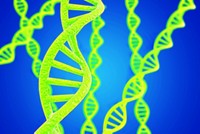Advertisement
Grab your lab coat. Let's get started
Welcome!
Welcome!
Create an account below to get 6 C&EN articles per month, receive newsletters and more - all free.
It seems this is your first time logging in online. Please enter the following information to continue.
As an ACS member you automatically get access to this site. All we need is few more details to create your reading experience.
Not you? Sign in with a different account.
Not you? Sign in with a different account.
ERROR 1
ERROR 1
ERROR 2
ERROR 2
ERROR 2
ERROR 2
ERROR 2
Password and Confirm password must match.
If you have an ACS member number, please enter it here so we can link this account to your membership. (optional)
ERROR 2
ACS values your privacy. By submitting your information, you are gaining access to C&EN and subscribing to our weekly newsletter. We use the information you provide to make your reading experience better, and we will never sell your data to third party members.
Biological Chemistry
An About-Face On Gene Patents
Lawsuit: U.S. Justice Department says unmodified DNA should not be patentable
by Glenn Hess
November 8, 2010
| A version of this story appeared in
Volume 88, Issue 45

Reversing decades of government policy, the Department of Justice declared last week that human and other genes should not be eligible for patent protection because they are products of nature.
“The U.S. has concluded that isolated but otherwise unaltered genomic DNA is not patent-eligible subject matter,” the department said.
Federal attorneys disclosed the policy shift in a legal brief filed in a landmark lawsuit challenging patents held by Myriad Genetics and the University of Utah Research Foundation on two genes: BRCA1 and BRCA2. Myriad, a biotech company based in Salt Lake City, has developed a diagnostic test that detects mutations in the genes that make women susceptible to breast or ovarian cancer.
In March, Judge Robert W. Sweet of the U.S. District Court for the Southern District of New York ruled that the patents were invalid. Myriad and the University of Utah have appealed.
Biotechnology companies argue that DNA-based patents are essential for protecting their investment in the research and development of genetic tests for medical diagnosis.
The U.S. Patent & Trademark Office (PTO) has issued thousands of patents on genes of various organisms; more than 20% of the genes in the human genome are now patented.
“We acknowledge that this conclusion is contrary to the long-standing practice of PTO, as well as to the practice of NIH and other agencies that have in the past sought and obtained patents for isolated genomic DNA,” the Justice Department said.
The brief contends that isolating a DNA molecule, without further alteration or manipulation, does not change its nature. “Common sense would suggest that a product of nature is not transformed into a human-made invention merely by isolating it,” department lawyers wrote.
But Ashley J. Stevens, president of the Association of University Technology Managers, argues that, without the ability to patent isolated DNA molecules, “many promising discoveries would not make their way from the university research lab and into the hands of companies for development of products that improve public health.




Join the conversation
Contact the reporter
Submit a Letter to the Editor for publication
Engage with us on Twitter